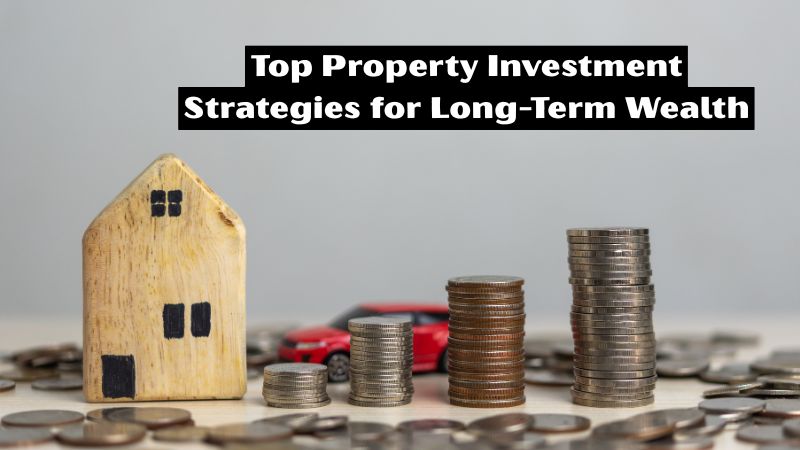Property investment has long been seen as a powerful way to build long-term wealth. It offers more stability than the stock market and has the potential to generate both ongoing income and significant capital growth. Whether you’re just starting out or looking to expand your portfolio, the right strategies can help you maximize returns and reduce risk. Let’s explore the best property investment strategies that can secure your financial future.
Start with Clear Financial Goals
Before buying any property, it’s important to define what you want from your investment. Are you looking for steady rental income, long-term appreciation, or both? Clear financial goals will help guide your decisions, from the type of property you buy to the location and financing method. Knowing your target will keep you focused and prevent costly mistakes.
Focus on High-Growth Locations
Location is key in real estate. Investing in areas with strong job growth, new infrastructure, and rising demand often leads to higher property values over time. Look for suburbs or cities where people want to live, work, and raise families. Research population trends, local economy, and future development plans. A high-growth area can turn an average property into a powerful wealth builder.
Invest in Rental Properties
Rental properties are one of the most popular ways to generate long-term wealth. They offer two major benefits: regular cash flow from rent and value appreciation over time. Choose properties in desirable neighborhoods with access to public transport, schools, and shops. Aim for properties that can attract long-term tenants and offer low vacancy rates. Over time, rent increases and loan repayments can grow your equity.
Use the Buy and Hold Strategy
The buy and hold strategy is simple and effective. You purchase a property and keep it for the long term, benefiting from capital growth and rental income. This approach works well in stable markets and allows your investment to grow passively. By holding onto your property for years or decades, you reduce the impact of short-term market fluctuations and enjoy compounding returns.
Leverage Your Equity
Equity is the difference between your property’s value and what you owe on it. As your property’s value grows, so does your equity. Smart investors use this equity to finance additional investments. This strategy, called leveraging, helps you grow your portfolio faster. For example, you can refinance one property to fund the deposit on another, expanding your assets without dipping into savings.
Diversify Your Property Portfolio
Don’t put all your eggs in one basket. Spread your investments across different types of property—residential, commercial, or even vacation rentals. You can also diversify across locations or states. This helps reduce risk in case one market experiences a downturn. A diversified portfolio offers more stability and can help you weather economic shifts while building long-term wealth.
Renovate for Profit
Buying older properties and renovating them can be a smart way to increase value. A well-planned renovation can improve both the rental return and market value of a property. Focus on cosmetic upgrades like painting, flooring, and kitchen or bathroom updates. Avoid overcapitalizing—only spend what you’re likely to recover in increased value. Renovation flips can offer quick returns, while rented renovated homes earn more.
Understand Property Cycles
Real estate markets move in cycles: boom, downturn, stagnation, and recovery. Understanding where the market stands helps you make better decisions. Buying during a downturn often means lower prices and better deals. Selling or refinancing during a boom can maximize profits. Keep an eye on interest rates, housing supply, and demand to time your moves wisely and get ahead of the curve.
Take Advantage of Tax Benefits
One of the perks of property investment is tax advantages. Expenses like loan interest, maintenance, and property management fees are often tax-deductible. You may also benefit from depreciation and negative gearing. These deductions can significantly reduce your taxable income. Consult a property-savvy accountant to make the most of these benefits and boost your investment returns.
Use a Long-Term Mindset
Property is not a get-rich-quick game. It requires patience, planning, and persistence. A long-term mindset helps you stay committed during market fluctuations and delays. The best returns often come after years of holding onto your investments. Stay consistent with your strategy, reinvest your gains, and focus on your big-picture financial goals.
Work with the Right Professionals
Property investment is a team effort. A good team includes a real estate agent, mortgage broker, accountant, and property manager. These professionals can offer valuable advice, help avoid legal or financial pitfalls, and save you time. Choosing experts who understand your goals and communicate clearly is key to long-term success in property investing.
Manage Your Cash Flow
Cash flow is the lifeline of your investment journey. Always ensure your property can cover its own expenses through rental income. Track your income, loan repayments, insurance, maintenance, and management costs. A positive cash flow means you’re earning more than you’re spending, which allows you to reinvest, grow your portfolio, or save for future opportunities.
Keep Learning and Stay Informed
The property market changes over time, and staying informed is vital. Read property news, follow market trends, and learn from experienced investors. Attend seminars, webinars, or join property groups to grow your knowledge. The more you know, the better equipped you’ll be to make smart, profitable decisions.
Reinvest Profits into More Properties
Instead of spending rental income or sale profits, consider reinvesting. Buying more properties with the profits earned helps you grow your wealth faster. Over time, this creates a snowball effect, where each investment funds the next. This strategy accelerates wealth creation and builds a strong, sustainable investment portfolio.
Keep Emotions Out of the Equation
Investing in property is a financial decision, not an emotional one. Don’t buy a house just because you like the look or feel of it. Instead, focus on numbers—rental yield, capital growth, and potential return on investment. Stay objective and let the data guide your choices. This mindset will help you avoid costly emotional mistakes.
Consider Off-the-Plan and New Developments
Buying off-the-plan can be a strategic move, especially in growing suburbs. You may secure a property at today’s price while it appreciates during construction. Developers often offer incentives like stamp duty discounts or upgrades. However, it’s crucial to research the builder’s reputation, project location, and market demand. Done right, off-the-plan purchases can offer great long-term rewards.
Exit Strategies Matter
Knowing how and when to sell is as important as buying. Always have an exit strategy—whether it’s selling after a set number of years, refinancing for equity, or passing the property to family. A clear exit plan helps you act when the time is right and protects your gains.
Conclusion
Building long-term wealth through property investment is achievable with the right strategies, mindset, and discipline. From choosing high-growth areas and diversifying your portfolio to managing cash flow and reinvesting profits, every step counts. Keep learning, stay patient, and surround yourself with the right experts. By taking a thoughtful and consistent approach, your property investments can become a powerful tool for financial independence and future security.



